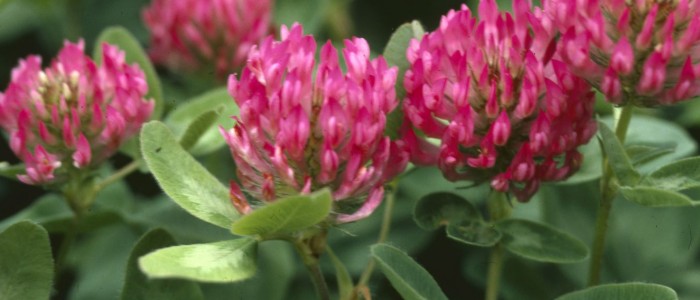-
 Turf Grass Seed Bluegrass, Bentgrass, Ryegrass, Fescues...
Turf Grass Seed Bluegrass, Bentgrass, Ryegrass, Fescues...
-
 Forage Seed Bromes, Clovers, Fescue, Wheatgrass, Legumes
Forage Seed Bromes, Clovers, Fescue, Wheatgrass, Legumes
-
 Grains Wheat Grain, Rye Grain
Grains Wheat Grain, Rye Grain
-
 Cover Crop Seed Buckwheat, Clover, Peas, Ryegrain
Cover Crop Seed Buckwheat, Clover, Peas, Ryegrain
-
 Wildflower Seed Mixtures, Singles, Annual, Perennial
Wildflower Seed Mixtures, Singles, Annual, Perennial
-
 Sprouting Seeds Fully certified Non-GMO Organic seeds for sprouts or microgreens
Sprouting Seeds Fully certified Non-GMO Organic seeds for sprouts or microgreens
Red Clover Non-GMO Sprouting Seeds
Red Clover (Trifolium pratense) is a favorite among sprout lovers. It’s easy to grow and produces a delicious crunchy, sprout with dark green leaves and white shoots. It’s very similar to alfalfa sprouts in flavor and texture, but sheds its hull more readily and often lasts longer in the refrigerator.
Seeding Rate:
Indoor: 1.5 Tbsp. / 10”x 20” tray
Outdoor: 20-25 lbs. / per acre
How to Grow: Soak seeds for 4-6 hours and drain. Rinse 2-3x/day for 4-6 days and drain thoroughly after each rinse. If grown in trays, plant in fertile, well-drained soil at a depth of at least 1/8” with temperatures between 50°F to 75°F under minimal sunlight. Keep the soil moist, but avoid overhead watering. Harvest when the seedlings are about 3-4” tall.
Cover Crop: If sown in the fall and tilled back, Crimson Clover will add nutrients to the soil for spring crops. Can be sown in spring as a companion crop to naturally add nitrogren, improve soil tilthe, and suppress weeds. Plants emerge quickly and withstand heavy spring rains. Crimson Clover is also frost tolerant. It is a beautiful and beneficial cover crop for gardens or pastures.
Nutritional Value: Sprouting seeds are richer in protein, folate, magnesium, phosphorus, manganese and vitamins C and K than un-sprouted plants. The vitamin and mineral content varies based on the variety of the sprouting seeds. Sprouts offer a powerful source of vitamins, minerals, antioxidants, and enzymes that fight free radicals because sprouting can increase their potency by 20 times or more.

